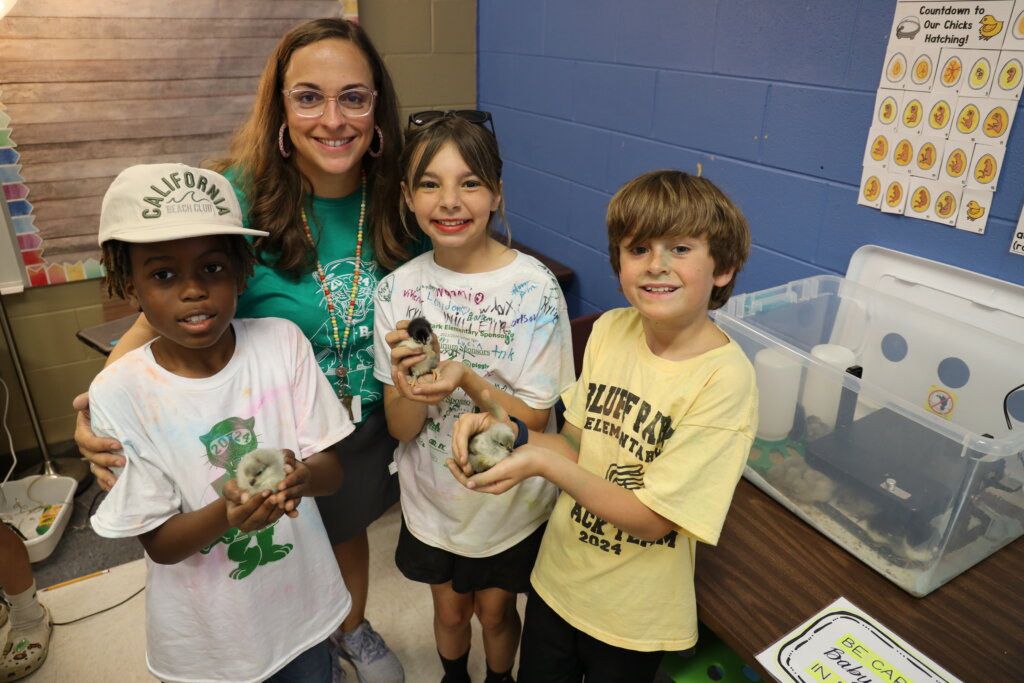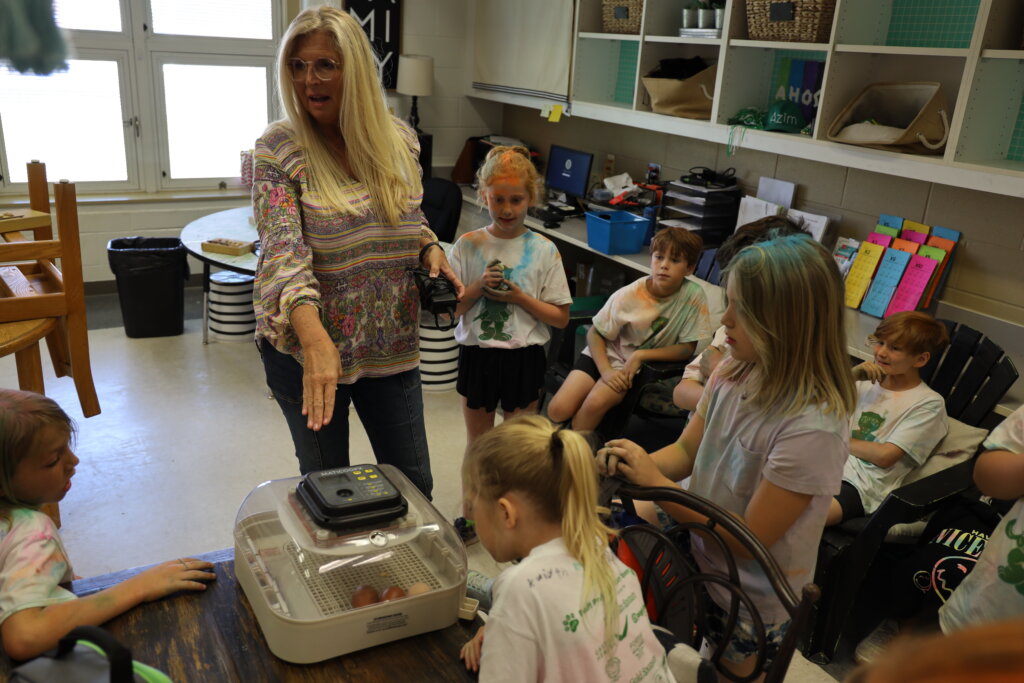Teachers Flock to Chick Checkout Program

By Marlee Jackson
Lessons about farming, science and the life cycle are coming home to roost at urban schools thanks to Jefferson County Farmers Federation’s (JCFF) Chick Checkout.
Retired educator Connie Fuller hatched the idea last summer after attending Ag in the Classroom Summer Institute on behalf of JCFF. With 25 years of elementary education under her belt, Fuller is the local liaison to teachers who attend the free continuing education workshop.
“I came up with Chick Checkout because four of our teachers won incubators for their schools as door prizes, but I had 14 teachers from Jefferson County there,” Fuller said. “Those 10 teachers who didn’t win wanted to raise chicks, too.”
Fuller knew JCFF couldn’t buy each teacher an incubator since even the simplest kits cost nearly $100. Instead, she pitched a simple idea: JCFF could purchase four incubators for educators to “check out” rent-free. They’d receive resources for the in-classroom mini-farms, such as food and fertilized eggs, plus coop-like cages once the eggs hatch. Fuller would also assemble a binder of vocabulary words, worksheets and posters.
Chick Checkout passed board approval with flying colors.
It received an A-plus from teachers like Lindie Viljoen, too.
Fuller delivered Viljoen’s supplies to Bluff Park Elementary School (BPES) in Hoover in early April. Third graders flocked to the incubator during the final weeks of school, while worksheets helped them learn basic poultry terms, like candling. Viljoen then candled each egg, pressing a light to the shell to show embryo development inside.
Chicks hatch near day 21 of incubation. As that three-week mark approached, students routinely checked for cracks they learned would appear as chicks pecked through the shell.

Fuller’s attention to detail and step-by-step support made Chick Checkout easy and educational, Viljoen said.
“I was nervous,” she recalled, “but it ended up being the easiest process.”
Fuller collected the schools’ final few chicks in May as the school year wound down. Pickup at BPES coincided with Field Day, so students wavered between sorrow and joy as they jostled for one final turn petting the downy chicks, calling them by name. (Students of Viljoen’s fellow teacher Natalie Brezda bestowed monikers that ran the gamut from Pickles and Mustard to Fluffy and Midnight.)
Chirps filled the background as students peppered Fuller with questions.
“Why didn’t those eggs hatch?”
“Where are you taking them?”
“Who’s going to take care of Midnight?”
Her teacher hat firmly in place, Fuller calmly answered.
“Don’t be sad about these,” she said, gesturing to the three eggs that didn’t hatch in Viljoen’s classroom. “It’s just not fertilized. That sometimes happens. Farmers know that not every egg will hatch.”
Those farmers include Fuller and her husband, Brad. Back on their farm in Warrior, Fuller will sell some chicks to help fund Chick Checkout. Other chicks will eventually lay eggs destined for Chick Checkout incubators.
“The need and interest are there,” Fuller said. “I think any county can do this.”
